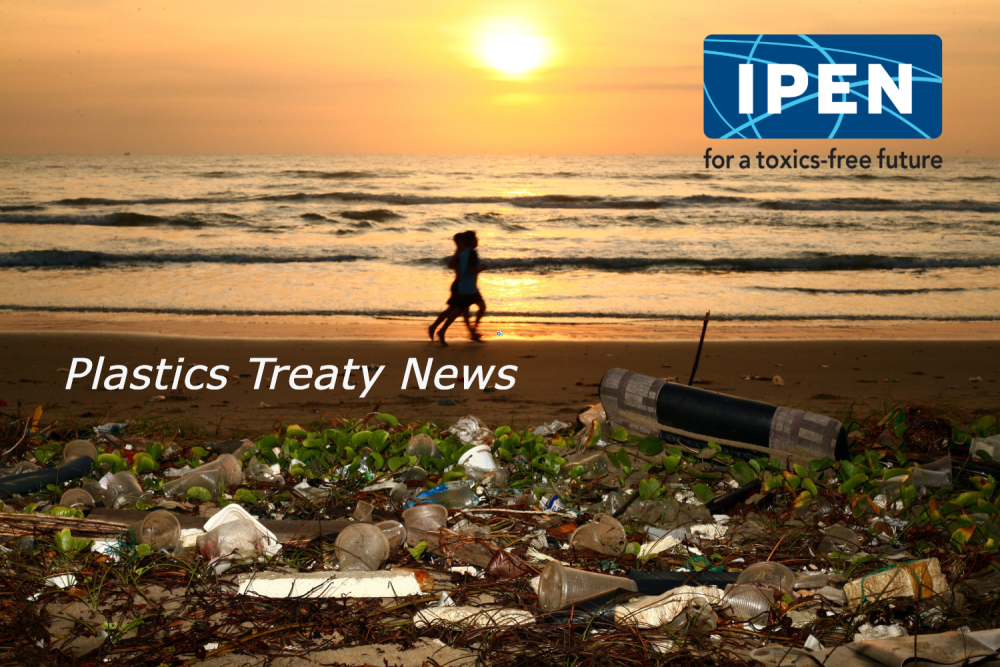Plastics Treaty News
Edition 1 - November 2022
IPEN will participate in the Plastics Treaty First Intergovernmental Negotiating Committee (INC-1) in Uruguay beginning in November 2022.
See all of our resources for the INC-1.

IPEN will participate in the Plastics Treaty First Intergovernmental Negotiating Committee (INC-1) in Uruguay beginning in November 2022.
See all of our resources for the INC-1.
IPEN has been studying the impacts of plastics and the chemicals they contain for 25 years, and has produced global data on the health and environmental threats from plastics. The background documents below are helpful resources to better understand the impacts.
IPEN's work in contributing to the Plastics Treaty and our members' global work to expose the health threats from plastics draws international media attention and influences the treaty negotiations. News reports of our work help to frame the plastics debate as a global crisis from chemicals in plastics. See some highlights from coverage of our work below.
See summaries of media coverage featuring IPEN during the week-long negotiations here.
